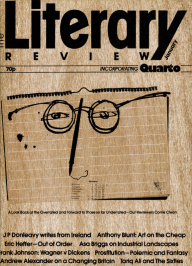Tariq Ali
Myopic Vision
The Sixies
By Channel Four
The Sixties
By Francis Wheen
Century 176pp ilus £8.95; £6.95 paper
Poor Francis Wheen. He was undoubtedly given an impossible brief. Compiling a book to accompany a television series is rarely an exercise designed to stimulate creative thinking. When the series in question is fundamentally flawed the result is, unsurprisingly, mediocre. The Sixties looks and reads like a giant colour supplement, though mercifully without the ads. Pearce Marchbank’s design is pleasing; the photographs are well chosen; there is an over-concentration on the form rather than the content. It is not that Wheen has not done his homework. The problem lies in the TV series rather than in the book.
The basic structural defect of the programme and the book lies in its conceptualisation of the Sixties. The politico-cultural radicalism that exploded in 1968 and culminated in 1974 was neither a thunderbolt from a clear blue sky nor a series of events restricted to Britain. The most remarkable feature of

Sign Up to our newsletter
Receive free articles, highlights from the archive, news, details of prizes, and much more.@Lit_Review
Follow Literary Review on Twitter
Twitter Feed
The era of dollar dominance might be coming to an end. But if not the dollar, which currency will be the backbone of the global economic system?
@HowardJDavies weighs up the alternatives.
Howard Davies - Greenbacks Down, First Editions Up
Howard Davies: Greenbacks Down, First Editions Up - Our Dollar, Your Problem: An Insider’s View of Seven Turbulent...
literaryreview.co.uk
Johannes Gutenberg cut corners at every turn when putting together his bible. How, then, did his creation achieve such renown?
@JosephHone_ investigates.
Joseph Hone - Start the Presses!
Joseph Hone: Start the Presses! - Johannes Gutenberg: A Biography in Books by Eric Marshall White
literaryreview.co.uk
Convinced of her own brilliance, Gertrude Stein wished to be ‘as popular as Gilbert and Sullivan’ and laboured tirelessly to ensure that her celebrity would outlive her.
@sophieolive examines the real Stein.
Sophie Oliver - The Once & Future Genius
Sophie Oliver: The Once & Future Genius - Gertrude Stein: An Afterlife by Francesca Wade
literaryreview.co.uk